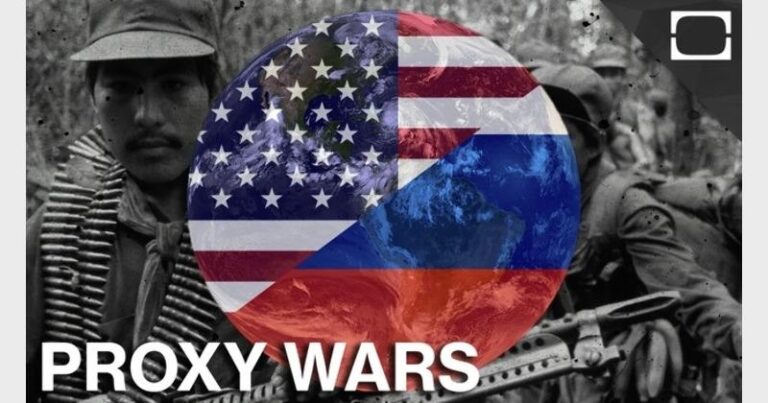A seemingly innocuous social media dispute over makeup trends on Turkish TikTok has unexpectedly ignited deeper tensions between Turkey and its diaspora communities in Germany, spotlighting the complexities of identity and political allegiance in a digital age. What started as a cosmetic debate has evolved into a proxy war, reflecting broader geopolitical and cultural frictions that extend far beyond the realm of beauty. This unfolding saga reveals how online platforms are increasingly becoming battlegrounds for national and diasporic narratives, with real-world implications for relations between Ankara and one of its largest expatriate populations.
Proxy War on Social Media Reveals Deepening Divides Within German Turkish Community
The recent viral controversy surrounding a Turkish-origin TikTok influencer’s makeup tutorial has evolved into more than just a social media spat-it has become a vivid lens exposing the fault lines within the German Turkish community. What began as a disagreement over cultural representation and beauty standards quickly escalated into heated debates that echo broader political and generational tensions. Younger members of the diaspora, fluent in both German and Turkish cultures, have challenged traditional expectations, while older generations accuse them of diluting heritage and identity. This digital proxy conflict reveals how online platforms have become battlegrounds for negotiating belonging, nationalism, and cultural pride.
Observers note that the divide is not just personal but emblematic of a complex interplay of factors:
- Generational Gaps: Younger diasporans seek to redefine identity on their own terms, often clashing with conservative elders.
- Media Influence: TikTok and similar platforms amplify voices but also magnify discord, creating echo chambers.
- Political Underpinnings: The quarrel taps into broader issues of Turkish-German relations and diaspora politics.
- Cultural Expectations: Social norms around religion, patriotism, and gender roles remain hotly contested.
| Aspect | Younger Diaspora View | Older Generation View |
|---|---|---|
| Cultural Identity | Hybrid, fluid, evolving | Traditional, rooted in heritage |
| Social Media Use | Platform for self-expression | Source of controversy and division |
| Political Loyalty | Critical, sometimes ambivalent | Strong nationalist ties |
The Role of TikTok Influencers in Shaping Diaspora Identity and Political Allegiances
TikTok influencers within the Turkish diaspora in Germany have emerged as significant arbiters of cultural and political identity, leveraging the platform’s immense reach to influence public opinion across borders. The recent makeup controversy – where opposing stances on the use of certain beauty products ignited wider debates – epitomizes how social media content can quickly escalate into symbolic battles reflecting broader communal tensions. These influencers do not merely entertain; they act as cultural intermediaries, shaping narratives that align with either conservative nationalist sentiments or progressive diasporic expressions, often mirroring the complex political currents between Turkey and Germany.
The impact of these TikTok personalities extends beyond aesthetics, tapping into the emotional fabric of a dispersed community facing questions of loyalty, belonging, and political allegiance. Key ways this manifests include:
- Framing Identity: Influencers curate content that resonates with either traditional Turkish values or more liberal European ideals, delineating in-group and out-group boundaries.
- Mobilizing Opinion: Hashtags and viral challenges become battlegrounds where diaspora youth publicly negotiate their standpoints.
- Transnational Influence: Content transcends national borders, impacting public discourse within Turkey while also shaping perceptions among German Turks.
| Influencer Role | Key Influence | Diaspora Impact | ||||||||||||||||||||||||
|---|---|---|---|---|---|---|---|---|---|---|---|---|---|---|---|---|---|---|---|---|---|---|---|---|---|---|
| Cultural Promoter | Preserving traditions via digital storytelling | Strengthening ethnic pride | ||||||||||||||||||||||||
| Political Advocate | Advocating nationalist or reformist ideologies | Polar It seems your content was cut off at the end. Here’s the likely continuation and completion of your table for clarity, along with a summary of the key points:
Summary:
If you would like, I can help you further expand, analyze, or format this content! Bridging the Gap Recommendations for Fostering Dialogue and Reducing Online PolarizationTo dismantle the growing divides highlighted by the recent Turkish TikTok makeup controversy, fostering genuine dialogue requires intentional approaches that prioritize empathy and mutual respect. Platforms must encourage users from differing backgrounds to engage beyond surface disagreements by promoting content that emphasizes shared cultural narratives and challenges stereotypes. Community moderators and creators can spearhead collaborative initiatives, such as joint live streams or Q&A sessions, to humanize opposing perspectives and build trust within fragmented diaspora groups. In addition, educational efforts focusing on media literacy and critical consumption of online information can empower users to recognize manipulation or misinformation fueling polarization. Practical strategies include:
Insights and ConclusionsAs the online fallout from the Turkish TikTok makeup row continues to reverberate, it underscores how social media can amplify long-standing political and cultural tensions within diaspora communities. Beyond a simple dispute over beauty trends, this episode highlights the complex interplay between identity, nationalism, and geopolitical fault lines among Turks living in Germany. Observers will be watching closely to see whether such digital conflicts deepen divides or prompt conversations toward greater understanding. |




